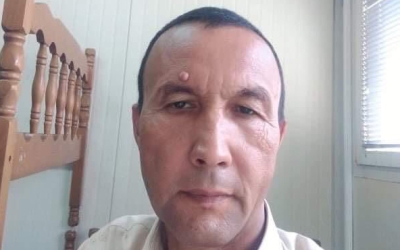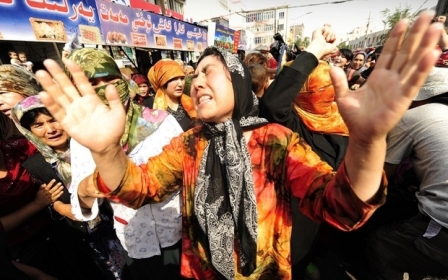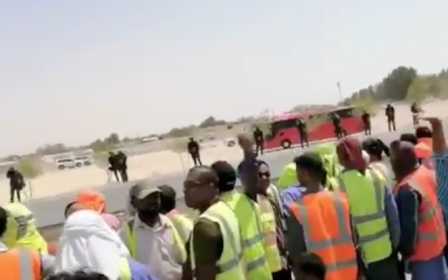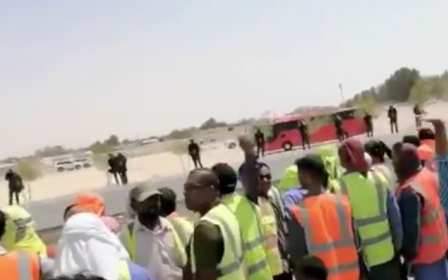Workers in Qatar continue to be exploited ahead of 2022 World Cup: Amnesty
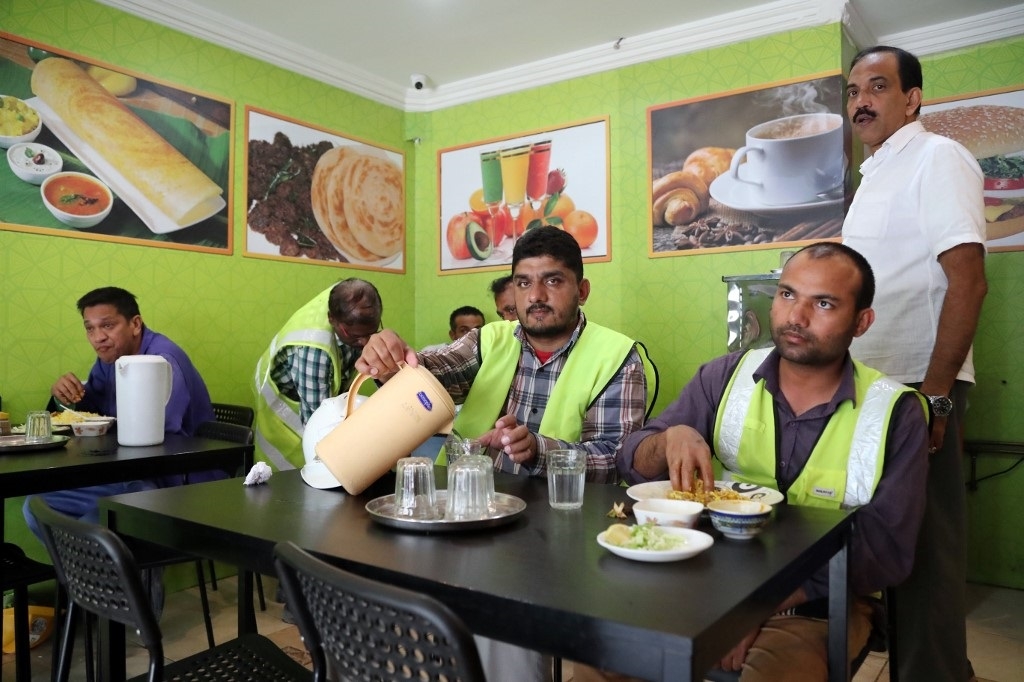
Workers in Qatar continue to be denied their rights despite the country's promise to increase worker protections ahead of the 2022 World Cup, according to an Amnesty report released on Thursday.
Thousands of workers from three companies involved in cleaning and construction told Amnesty that they weren't paid for several months after their companies went bankrupt following the cancellation of contracts with the gas-rich kingdom.
'There seems to be an unwillingness by the Qataris to provide the resources needed to ensure these committees are run properly'
- Stephen Cockburn, Amnesty
According to Amnesty, the workers, who did not work on World Cup projects, took their complaints to dispute panels set up by the Qatari government which were completely ineffective.
The cases of many of the workers weren't heard because of the volume submitted, while others gave up over repeated bureaucratic mishaps and went home penniless.
None of the workers who went to the dispute committees were given compensation from their employers, even when the panels ruled in their favour, Amnesty reported.
New MEE newsletter: Jerusalem Dispatch
Sign up to get the latest insights and analysis on Israel-Palestine, alongside Turkey Unpacked and other MEE newsletters
However, some workers received partial compensation from their companies if they dropped their cases.
An employee of United Cleaning, one of the companies involved, said he had to wait five months for his case to be heard "with very little food and no salary".
"My family was really affected. Tears come to my eyes when I remember where we used to go to find food… in the bins," the Kenyan employee told Amnesty.
“After two years and five months of working with United Cleaning without taking any vacation, the company owes me a lot of money which they refuse to pay me. If I get it I can go home to my wife and son.”
More resources needed
The dispute panels were launched in March 2018, part of a series of reforms Qatar initiated in partnership with the International Labour Organisation, to improve labour rights.
In 2018 alone, after the panels were established, they received more than 6,000 complaints, according to Amnesty, citing the US State Department.
Stephen Cockburn, Amnesty International's deputy director on global issues who co-authored the report, said the Qataris had not responded to cases filed with the dispute panels within the six-week timeframe set to resolve them.
"There seems to be an unwillingness by the Qataris to provide the resources needed to ensure these committees are run properly," he told Middle East Eye.
Cockburn said from March 2018 on, more than 1,600 people from the three companies submitted complaints to the dispute committees with many waiting three to eight months to have their cases heard.
"But during that wait, many gave up as they had no safety-net and were living in terrible conditions," he said.
On Thursday, the Qatari government's communications office, responding to Amnesty's report, told MEE that it had "made substantial progress on labour reforms".
"We continue to work with NGOs, including the International Labour Organization, to ensure that these reforms are far-reaching and effective. Any issues or delays with our systems will be addressed comprehensively," the government said in a statement.
Football's world governing body, FIFA, told the BBC that the Amnesty report "does not concern World Cup sites" and confirmed that "contractors referenced in the report have never been engaged on World Cup projects in Qatar".
It also said it took the rights of World Cup workers "very seriously" as part of its human rights policy.
Middle East Eye delivers independent and unrivalled coverage and analysis of the Middle East, North Africa and beyond. To learn more about republishing this content and the associated fees, please fill out this form. More about MEE can be found here.


